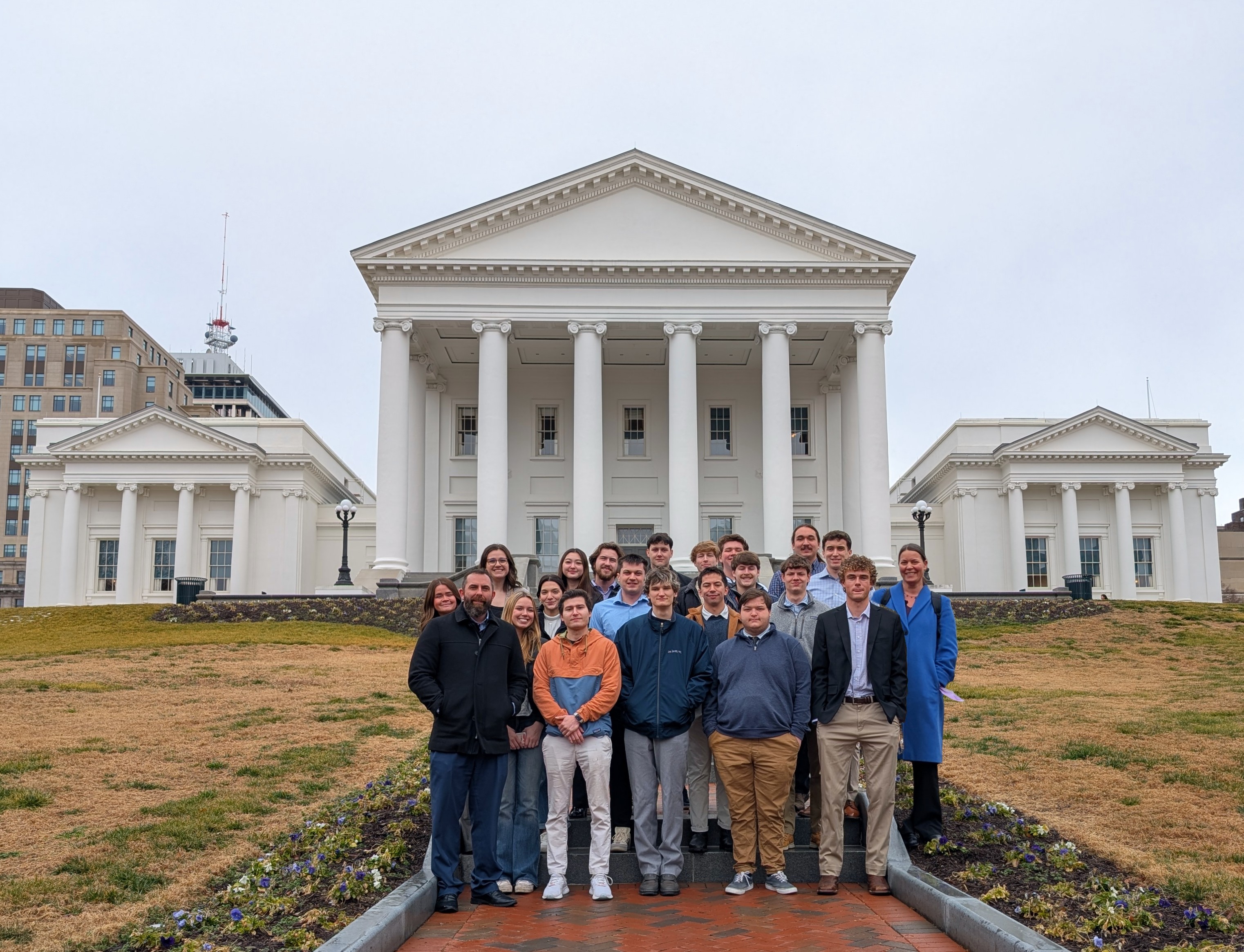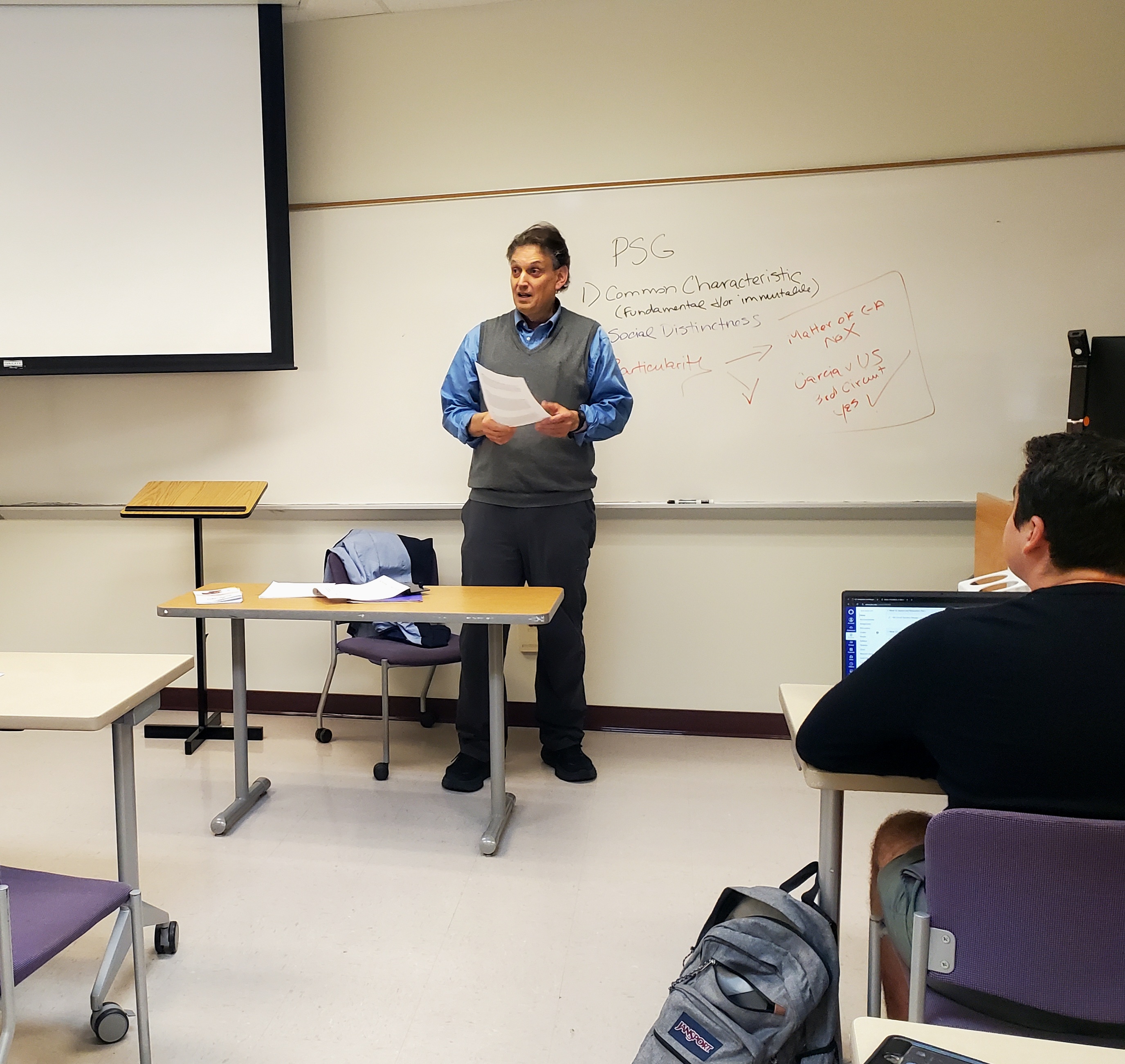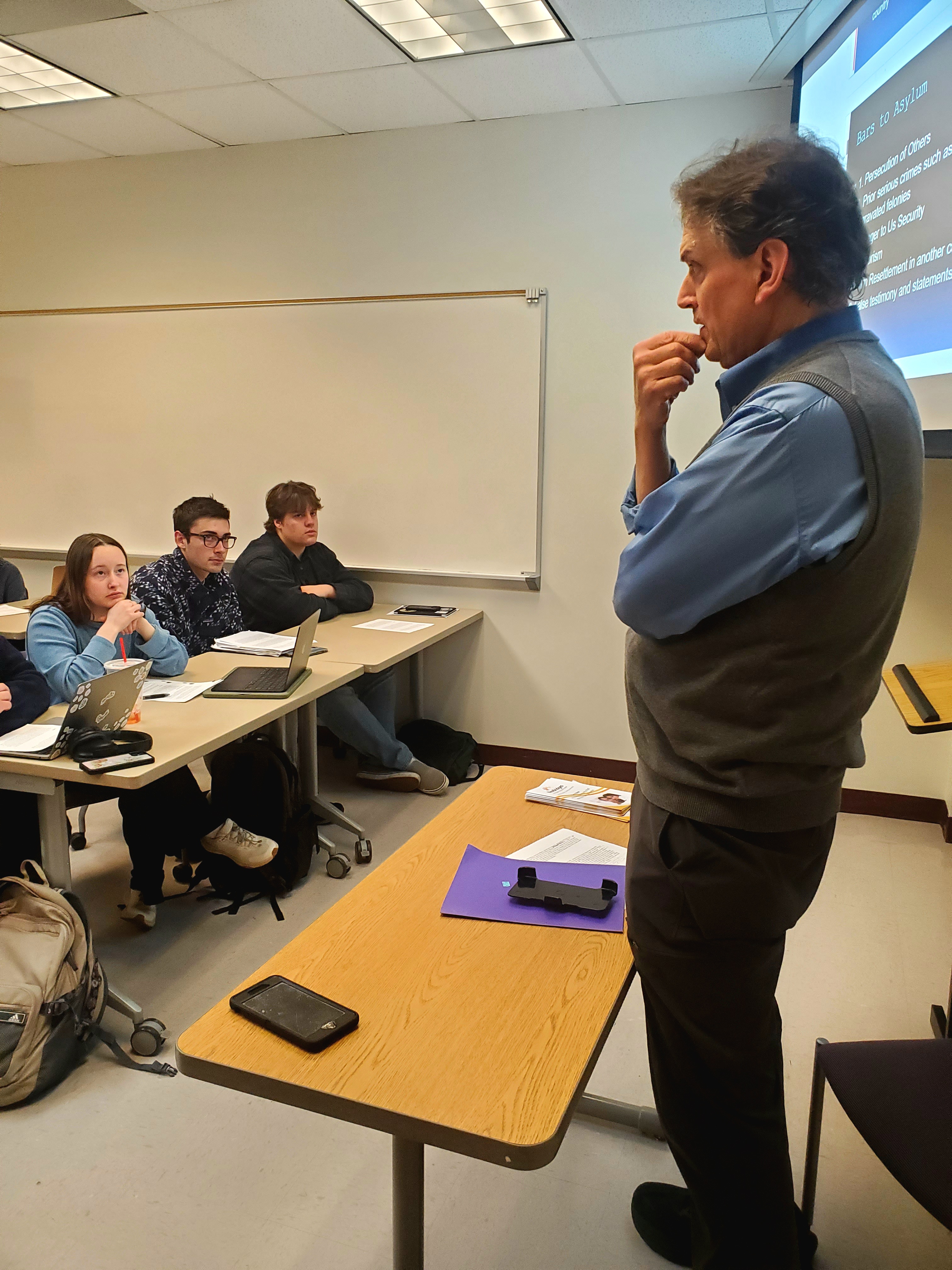Featured Story
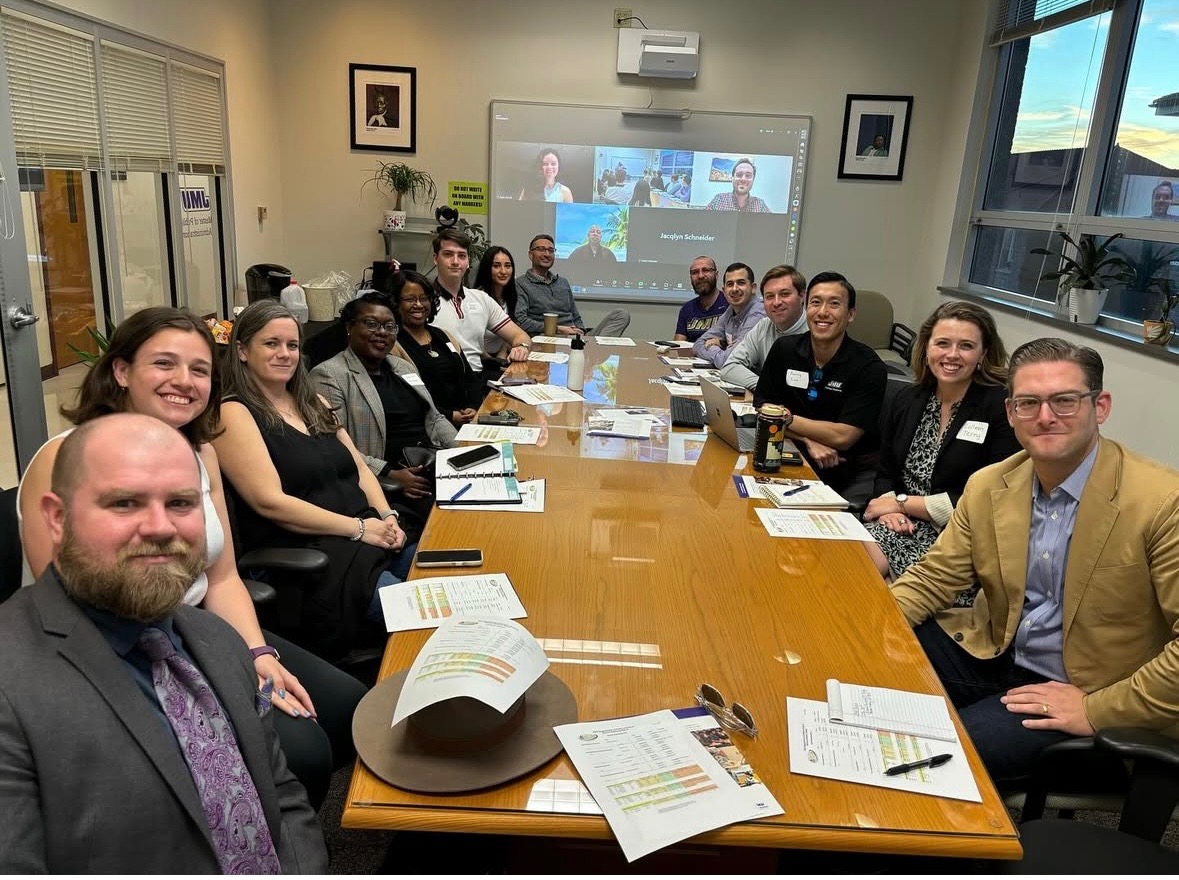
Letter from the Alumni Board Chair
Fellow Political Science Alumni:
Over the past year, I have had the privilege of serving as President of the JMU Department of Political Science Alumni Board. For those unfamiliar, the Board was established in 2011 to facilitate and strengthen relationships among the POSC Department’s students, faculty, staff, and alumni. The board is non-partisan and consists of 17 departmental graduates, selected from among the three undergraduate majors in political science (POSC), public policy & administration (PPA), and international affairs (INTA).
Letter from the Department Head
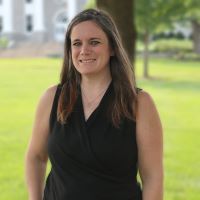 By Kerry F. Crawford
By Kerry F. Crawford
The Department of Political Science has always been a vibrant intellectual community. When I first interviewed for a faculty position with the department as a young PhD candidate, I knew right away that this was the place I wanted to be. The faculty clearly supported one another and the students were engaged and curious. Fast forward 11 years and the department’s collegial, supportive atmosphere remains one of our greatest strengths. The faculty, staff, students, and alumni of the Department of Political Science make this the best place on campus to teach, learn, and work—in my entirely biased opinion.
At the heart of everything we do in Miller Hall is our mission: The Political Science Department seeks to improve the quality of public policy and civic life in the United States and abroad by teaching students to think analytically and critically, conducting meaningful research, and collaborating with people in and beyond our JMU and local communities. All are welcome in Miller Hall. Just as it has been, so it will always be. As a department that offers three undergraduate majors, two graduate programs, and many paths, we support all our students on their journey to public service in its myriad forms.
In this time of immense change in Washington, our students, new graduates, alumni, and their families are navigating uncertainty related to lost internship and job opportunities, rescinded job offers, and layoffs in federal agencies and adjacent organizations. Our thoughts are with all in our Political Science community who are affected by the many changes in government that have occurred and will continue to unfold this year. Recognizing the uncertainty that accompanies so much change in the federal government, our faculty and alumni have teamed up to create opportunities for students and new graduates to explore the diverse career paths in public service. Our graduates are well positioned to build meaningful public service careers in local and state government, non-profit agencies, and government contractors. Our students, faculty, and alumni are united in their passion for public service and being the change they wish to see in the world, and the Department of Political Science will continue to identify ways to support the members of our Miller Hall community as we navigate public service in a changing federal landscape.
In the midst of so much change, one constant remains: our faculty, students, and alumni have been busy! We have several new faces in Miller Hall. Our Alumni Board held professional development sessions on campus for our students and visited with Virginia’s legislators to highlight our university’s unique strengths and contributions. Faculty have developed timely new courses, including Dr. Kathleen Ferraiolo’s new Politics of Mental Health course, which was supported by a prestigious College of Arts and Letters Course Development Grant. Dr. Lili Peaslee and new instructor Mr. Joel Hensley revived the beloved Richmond trip with their students in Virginia Politics and the senior capstone course in Public Policy. Outside of the classroom, faculty have continued to engage in interesting and important research, including Dr. Abe Goldberg’s new book on civic engagement. Our students have excelled in team-based projects and competitions both on and off campus, including through our new Diplomacy Lab and long-running programs like Model African Union, Model European Union, and the Moot Court team. It has been a year of impressive accomplishments, engaged learning, and collaboration in the Department of Political Science. Of course, many of the opportunities available to our students, faculty, and alumni were made possible through the support of the friends of the Department of Political Science; as always, my colleagues and I remain grateful for the support of our donors.
May the upcoming summer months bring a more peaceful pace to the daily lives of our students, faculty, alumni, and friends of the Department of Political Science. As we send the Class of 2025 off to their next chapter, we know that these new alumni are well prepared to traverse any path to public service and will be the change they wish to see.
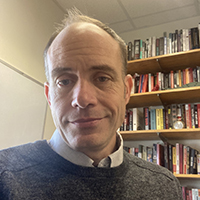
Chris Price teaches courses on security, conflict, and cooperation. Chris’ research interests are in the dynamics and legacies of political violence – civil war, insurgency, and terrorism. He is particularly interested in how violence affects group identities. His work has been published in The Journal of Conflict Resolution, International Studies Review, and Civil Wars, and his research has been funded by the U.S. Institute for Peace, U.S. Army, and the Japan Foundation.
Chris earned his Ph.D. at Yale University, and has since been the Wisconsin International Relations Fellow at the University of Wisconsin-Madison, a post-doctoral researcher at the University of Chicago, and visiting assistant professor at Bates College, Maine. Before graduate school, Chris served with the U.S. Army in Kosovo, Afghanistan, and Iraq. He also served with the U.S. Department of State in Iraq. Outside of work, he enjoys going to art museums and long aimless walks.
An International Student's Journey Through the JMU Washington Semester Program
When it comes to expanding career opportunities and gaining real-world experience, the Washington Semester Program at James Madison University stands out as a transformative experience for many students. Open to all majors, it offers students the opportunity to spend a semester in Washington, D.C., combining academic coursework with hands-on internship experiences in government, nonprofits, think tanks, and other organizations. But for international students, the decision to step outside their comfort zone and take on a semester in Washington, D.C., comes with its own set of unique challenges — and rewards.
To explore what the Washington Semester Program can offer to international students, we recently caught up with Adan Toledo, a JMU alumnus who participated in the program in Fall 2014. Adan, originally from Mexico, shared his personal journey through the program and how it shaped his academic and professional path. Read about Adan's experience
Moot Court's Busy Year
By Robin Leiter-White
Last fall, JMU reestablished its Moot Court Club attracting many students interested in law related activities. Three teams of JMU students competed at the Fearless Terps American Moot Court Association (AMCA) tournament at the University of Maryland in November against teams from all over the country. The AMCA hosts competitions for oral and written legal advocacy for undergraduates each year. A case problem with a fact pattern with two unresolved legal issues based on real case law is released in May. At competitions in the fall, teams of two students argue the case in a simulated Supreme Court argument before a panel of legal faculty and practitioners, often including state and federal judges.
The Moot Court Club is recruiting new members this spring in anticipation of competing again in the fall. In addition to appellate argument simulation, the group is also learning trial skills by putting on a mock trial in April that will be open to the JMU community. The club hopes to establish a Mock Trial team to compete in collegiate tournaments next spring. Students are excited about these opportunities to compete, learn about litigation and the appellate process and meet other people interested in law.
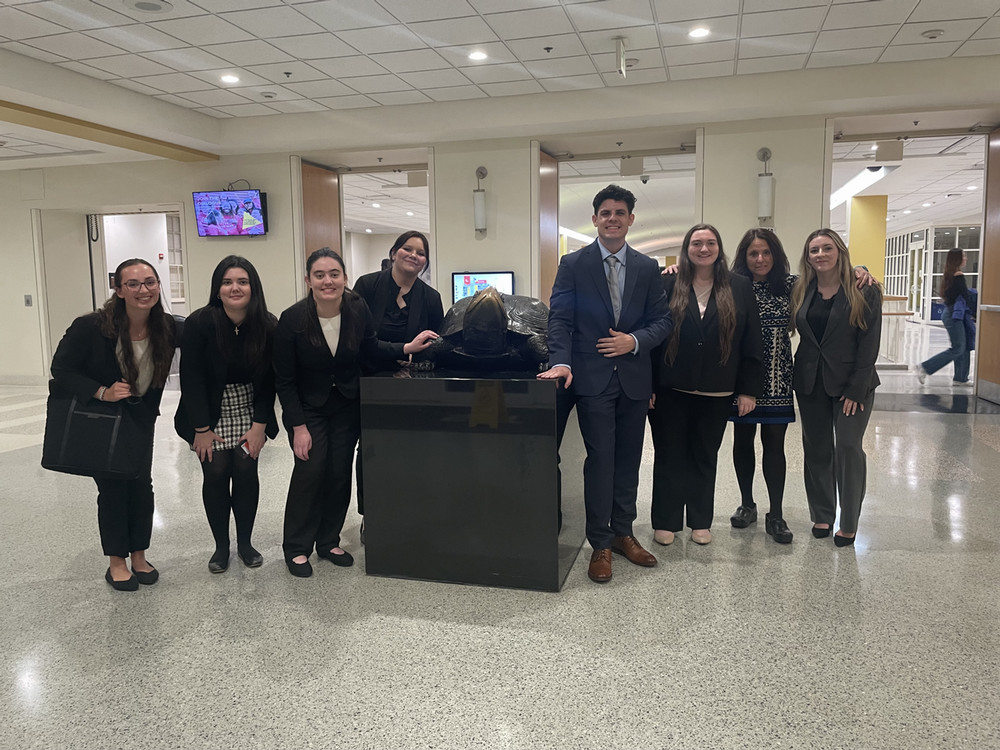
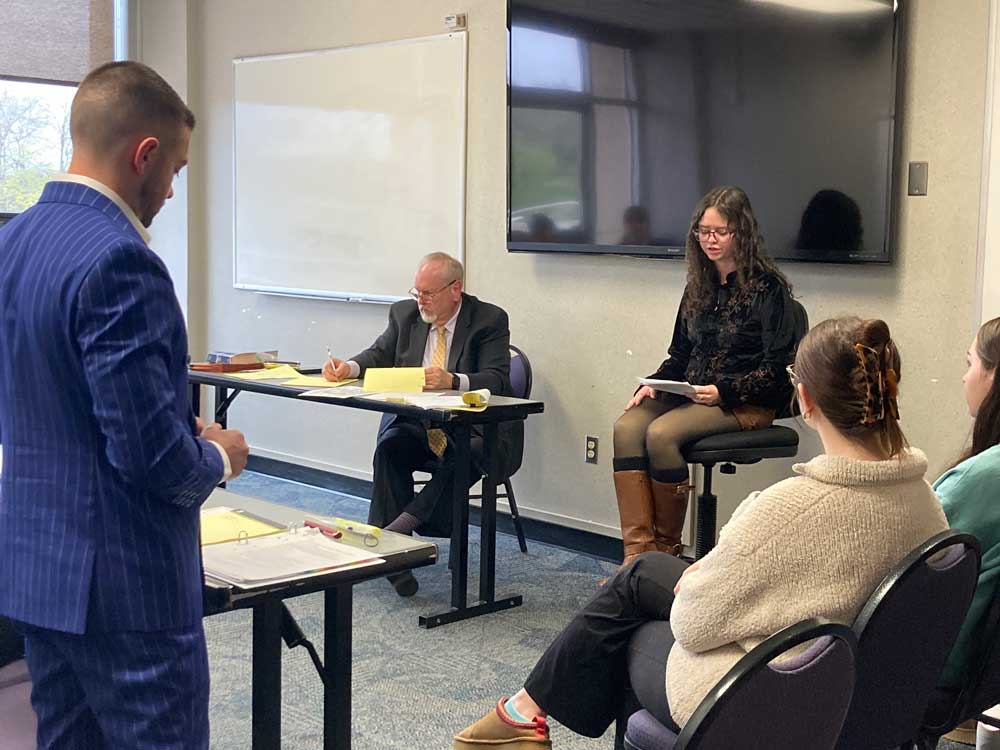
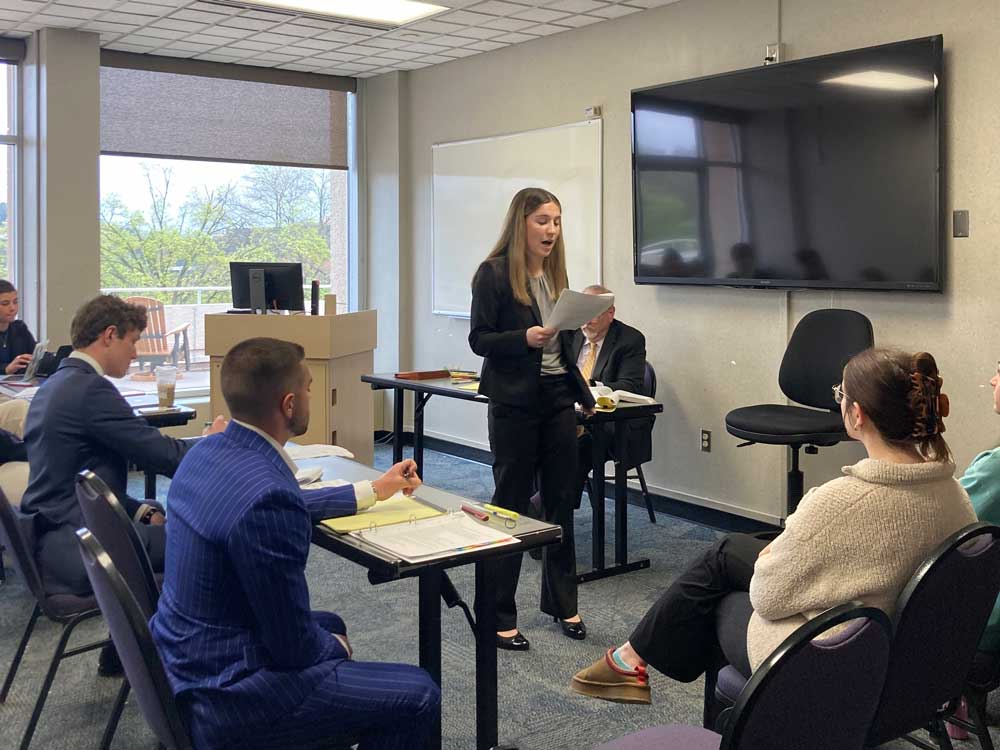
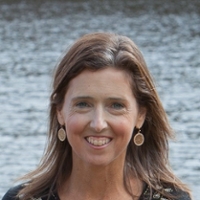
By Kathleen Ferraiolo
Throughout my career in the Department of Political Science, I have been fortunate to teach an array of courses, from a General Education U.S. Government class, to required core courses in public policy and methodology, to upper-level electives. In the last couple of years, I began reflecting on what new course offerings I might develop.
Back in graduate school I took an innovative course on the politics of mental health, and as I delved into the literature on this topic I became determined to develop such a class for our political science students. The National Alliance on Mental Illness estimates that one in five U.S. adults experiences mental illness every year, and the Centers for Disease Control and Prevention reports that more than fifty percent of Americans will experience mental illness in their lifetime. The core question I wanted to address: how is mental health political?
In the spring of 2024 I applied for and was thrilled to receive a competitive $5,000 College of Arts and Letters Faculty Development Grant to develop a new course on The Politics of Mental Health. I spent the past year canvassing the literature, identifying core themes and topics, developing lecture materials, and designing assignments. This spring, I am piloting the class with a group of thirty students eager to learn about topics such as how mental illness and mental health have been defined over time, historical developments in mental health policy, and the status of mental health care today.
At a time when rates of anxiety and depression are at record highs, researchers are turning more and more attention to the relationship between Americans’ mental health and the nation’s political health. We now know that mental health diagnoses – particularly clinical depression – can have a significant impact on voter turnout, trust in government, and support for democratic institutions. In turn, election outcomes and day-to-day political events can spike individuals’ anxiety levels and can lead to negative emotions that jeopardize psychological well-being. The mental health of individual Americans and the health of our democracy are intimately linked, and political science can contribute to these conversations.
The opportunity to develop this new course was available due to the generous support of our donors, and I am extremely grateful to have been awarded a CAL Faculty Development Grant. I look forward to continuing to refine the course content and to explore the connections between politics and mental health with future students.
Faculty Research Corner
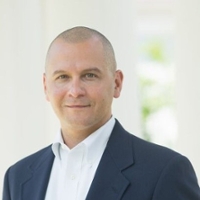 By Abe Goldberg
By Abe Goldberg
The most recent movement to reclaim higher education’s commitment to democracy was ignited in 2021 when about 70 national higher education organizations called for institutions to ensure that civic inquiry and democratic engagement be a part of each student’s academic experience. The rationale is to bring campuses closer to fulfilling their civic missions and to prepare students to address the public issues they are inheriting.
Though an ambitious vision with a significant coalition, the initiative comes at a time when both democracy and higher education are facing significant challenges. The United States has been described as being in a period of democratic decline and was recently added to the CIVICUS Monitor Watchlist based on eroding civil liberties and freedoms. Over half of US adults report that laws and politics are not reflective of what most people think, and close to one-third of young people believe that democracy is no longer a viable system of governance.
This coincides with growing scrutiny from public officials on how academic institutions educate students on public issues in the first place. PEN America chronicled a whopping 250% increase in proposed educational gag orders from 2021 – 2022, and new campus policies on student organizing and political engagement instituted across the country have been described as overly restrictive and suppressing of discourse.
Meanwhile, perceptions of faculty and student free speech has shifted. A new study from the American Association of Colleges and Universities found that more than a third of university professors perceive declines in academic freedom and only about 10% report that their administration supports it “a great deal”. Further, a Knight Foundation study found that only 43% of college students believe free speech rights are secure (down from 73% in 2016) and 49% believe the same about the freedom to peacefully assemble (down from 66% in 2016). It is unclear how these changes affect efforts to prepare students to address public issues, but it does appear to be in conflict with national calls for a recommitment to higher education’s civic mission.
My new book, Leaning into Politics: Higher Education and the Democracy We Need, explores these issues and attempts to provide a path forward. It is an edited volume with chapters covering a global context on how authoritarian governments have targeted universities, ways that higher education adjacent nonprofit and philanthropic organizations shape institutional efforts to prepare students for civic engagement, the development of a democratic ethos across institution types and ways colleges and universities can help students develop civic skills and dispositions through curricular and co-curricular programming.
The Lumina Foundation funded a convening of all participating authors in Washington DC to workshop ideas and the project was featured as a plenary session at the Civic Learning and Democratic Engagement Annual Meeting. Most recently, I participated in the Youth Civic and Voter Engagement Initiative at the White House (under the previous administration) with two JMU students to discuss the book and learn from scholars and students as we collectively think about how best position higher education to reclaim its civic mission.
Asylum Attorney Visits Immigration and Refugee Law Class
By Jenny Byrne
Part of our civic engagement mission at JMU, and the Department of Political Science, is to provide our students with experiental learning opportunities, including hands-on projects with community leaders. As part of one of our upper-division major courses, POSC 367: Immigration & Refugee Law, local asylum attorney Steve Smith visits the class to workshop on-going asylum cases with the students. This workshop helps students develop the skills necessary to write their own asylum memo, based on a fictional case, and prepare for their roles in the mock asylum hearing at the end of the semester. Steve brings a wealth of experience to the class as he has his own immigration practice, focusing on removal and asylum, and is the staff attorney for a local non-profit organization, New Bridges. Typically, students will be divided into teams, and each is assigned a case to think through how they might make an argument for a claim to asylum. Being able to talk through these cases with Steve brings a valuable, and necesssary, practitioner-based element to the course.
Quad Q's
Students Engage in Civic Action on the JMU Quad
By Emma Llewellyn (PPA ‘25)
Last fall (2024), I organized and led “Quad Qs.” The primary goal was to give students the opportunity to engage in civic topics—importantly, in a prominent space on campus—and to prepare them to participate in the presidential election. Student volunteers stood on the heavily trafficked Quad, wearing poster boards asking their peers about their plan for voting, what issue they cared about most, and which presidential candidate they preferred. In just two short hours, more than two hundred students participated, and there were over five hundred hits on social media. That said, within 40 minutes of the event starting, I was approached by campus police in response to a “report of potential political activism on the Quad.”
Based on the amount of participation in Quad Qs, it was clear to me that students crave civic dialogue, which I believe was lacking in light of restrictive free speech and expression policies (1121 and 3104) on our campus. This project has led me to think more critically about the role that higher education institutions play in promoting, protecting, and enhancing democracy, and I have since published an article with Dr. Goldberg on that topic. Further, I attended a panel at the White House focused on youth in civic engagement and have advised other student leaders as they have thought about navigating campus speech policies to promote nonpartisan civic engagement initiatives. It has been an incredible experience to apply the skills I obtained in the classroom to the “real world.”
I want to specifically shout out my peers who acted as agents of good; thank you, Roland Lamoureux, Wyatt Scott, Drew DeBerry, Avery Linn, and Ella Geib!
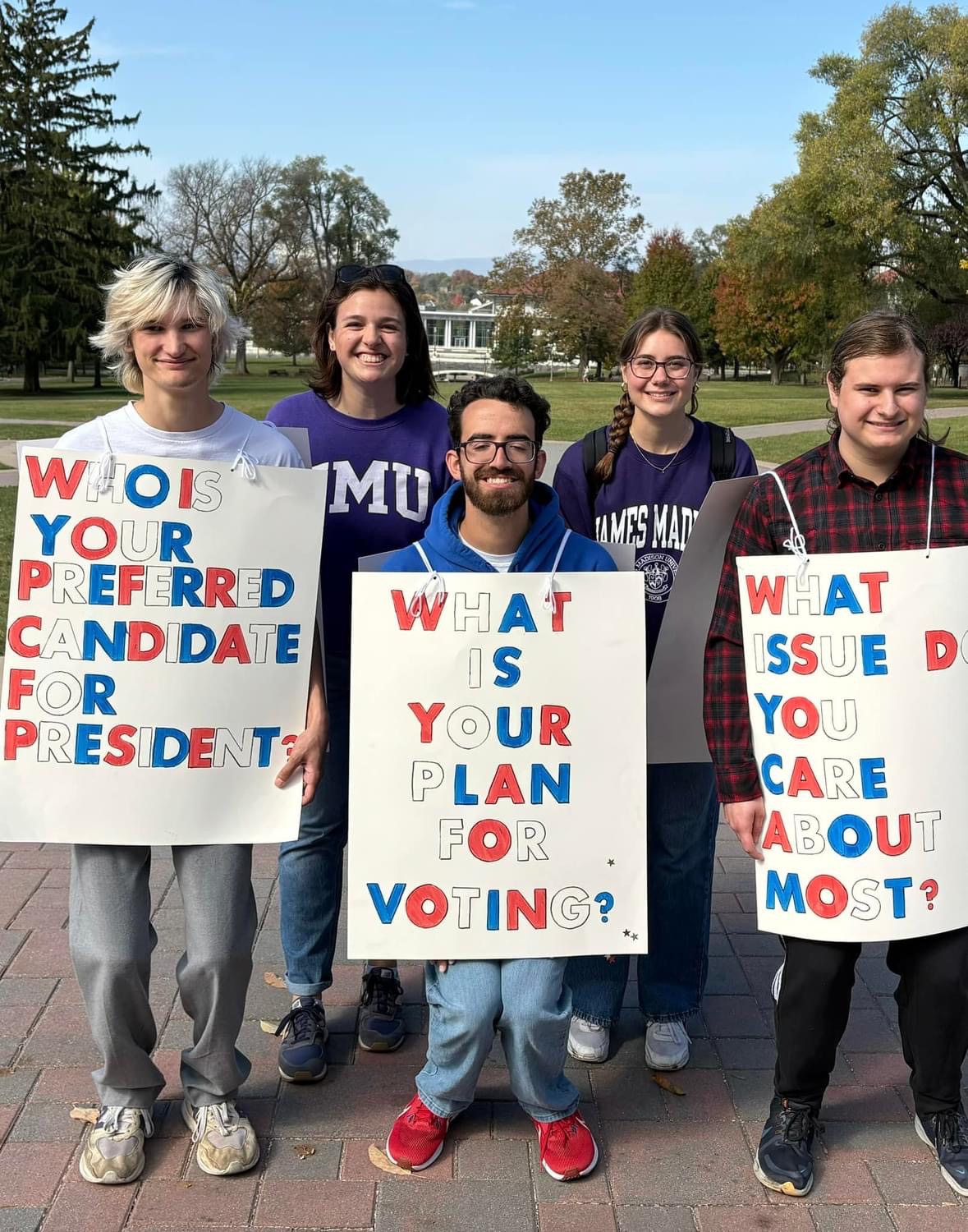
Department Majors Pursue Honors Thesis Projects
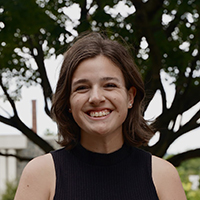
By Emma Llewellyn (PPA '25): An Analysis of Medicare Reimbursement Models
Hello! My name is Emma Llewellyn; I will graduate in May with a B.S. in PPA with a concentration in policy and minors in Political Science and Honors Interdisciplinary Studies. When I returned to JMU in the Spring of 2024 following my Washington Semester Experience, I decided to pursue research related to my health policy internship in DC. My thesis, "US Policies to Promote Better Health Outcomes Among Medicare Beneficiaries: An Analysis of the Fee-for-Service and Value-Based Care Reimbursement Models," Is an analysis of various Medicare reimbursement models, namely the traditional Fee-for-Service (FFS) model, the Medicare Shared Savings Program (MSSP), the Pioneer ACO, and the Next Generation ACO (NGACO).
I have utilized the following criteria in my evaluation: effectiveness, costs, specifically Medicare spending at the federal level, and both political and administrative feasibility. Effectiveness was a key criterion; I defined it as better quailty of caree and increased access to care. I used to publicly available data from the Centers for Medicare and Medicaid Services (CMS) to measure quality using variables like hospital readmission rates and Consumer Assessment of Healthcare Providers and Systems (CAHPS). Further, I used CMS data, such as health promotioin and education scores and the number of RHCs/FQHCs/CAHs, to assess access to care. I am still working on my conclusion and policy recommendation, but I look forward to presenting my research in mid-April and submitting my final thesis in May!
The experience of working on an undergraduate thesis project has been invaluable, and it has only fueled my passion for health policy. I am excited to share that I will be attending UNC-Chapel Hill in the Fall to pursue my Master's of Public Health with a healthy policy concentration, and I can't wait to continue my research and use the skills I have gained moving forward.
Department Majors Pursue Honors Thesis Projects
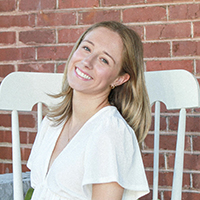 By Maya Noboa (INTA ‘25): The Consequences of Unethical Labor Practices
By Maya Noboa (INTA ‘25): The Consequences of Unethical Labor Practices
Sweatshop labor remains a critical issue in the operations of many multinational corporations, both large and small. Over the past three semesters, I have dedicated my research to uncovering the prevalence of unethical labor practices, with a particular focus on China, the chocolate industry, and the fast-fashion giant Shein. My thesis sheds light on the harsh realities faced by individuals trapped in exploitative work environments, while also offering actionable steps consumers can take to help address, albeit not eliminate, the problem. This topic has become a deep passion of mine as I’ve uncovered just how widespread the issue truly is. From the Uyghur community in China to cocoa field workers in Côte d’Ivoire and children hidden away in Shein’s factories, countless lives are shaped by subhuman working conditions. Alarmingly, even seemingly innocuous items we use daily, like desks and chairs in Virginia’s public institutions, often have roots in unethical labor. Through my research, I’ve examined how globalization and interconnected trade networks have fueled immense wealth for a privileged few, while perpetuating abuse for countless others. Additionally, my thesis explores the significant environmental toll of unethical labor practices, particularly in the context of fast fashion. The textile industry is known for its significant carbon footprint, as well as water pollution from plastics in clothing, and massive waste due to ever-changing clothing trends.
JMU Goes to Richmond
By Ainsley Young (PPA '25)
In February, my classmates and I had the exciting opportunity to visit Richmond as part of our political science and public administration studies to see state politics and policymaking firsthand.
We started the day by visiting the Virginia State Capitol and grabbing lunch from Meriwether’s Café. We then visited the Joint Legislative Audit & Review Commission (JLARC), where we learned about policy analysis from experts, getting a firsthand look at how the state evaluates its programs and policies. Our next stop was the Department of Planning and Budget, where we had the chance to hear from Mya Wilcox, a Public Administration alumna, about the complexities of state budgeting and fiscal planning. A personal highlight of this visit was reconnecting with a former classmate who now works in the department. Seeing someone I had a class with just last year thriving in the field was reassuring and reinforced the idea that my classmates and I can count on JMU alumni for guidance and support as we navigate our careers.
After a productive afternoon, we sat on a committee hearing to better understand Virginia's legislative process. The day wrapped up with a networking event, where we connected with department alumni who are now working on the same career paths many of us hope to pursue. Hearing their experiences and advice was invaluable and made me feel more confident about the opportunities ahead. Many alumni expressed how available they would be if we ever needed assistance or guidance following graduation.
This trip was an excellent opportunity to engage with real-world applications of the concepts we’ve studied throughout our four years at JMU. I left Richmond feeling inspired, knowing that JMU alumni have successfully transitioned from students to professionals and that we have a strong network to rely on as we do the same.
